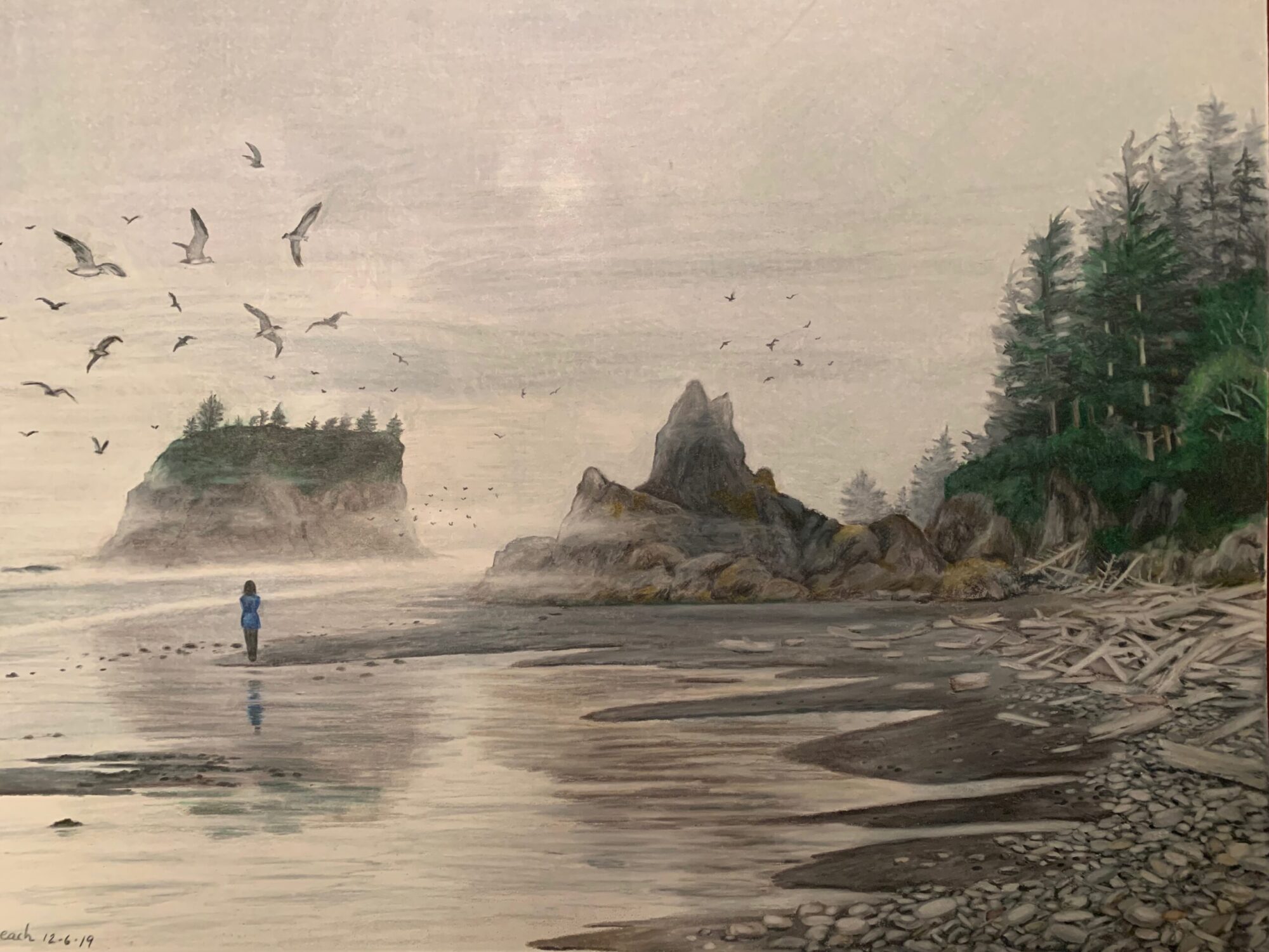When visiting a new city, it is common for people on foot and travelling by car to navigate the city by way of a GPS system. As convenient as this service is, city goers have become increasingly dependent on their phones to understand their spatial surroundings. Designer, Archie Archambault, challenges our perceptions of a city’s landscape, using the minds of locals to reshape maps of the city to match how we conceptualize these spaces.
Archambault developed his series “Map of the Mind” by interviewing locals from various major cities across the world to build maps of their cities based on the emphasis they place on each landmark of a city’s geography. The methodology of Archambault’s work is to depict the highlights of any city. Each highlight is indicated with a circle. The size of each circle, whether it is a neighborhood, park, or other monument indicates its importance in the city. The basic idea for this project came as a result of a peer living in Washington D.C. free hand drawing a map of their city. From here, Archambault expanded his tour across the world, staying with locals in various cities, working with historical organizations, and local cartographers.
Archambault’s project emphasizes the society’s significant dependence on GPS devices to understand our spatial existence. Though these maps do not necessarily help viewers get from Point A to Point B, his work furthers the suggestion that those who rely more on spatial recognition using landmarks exercise parts of their brain that are often ignored by those dependent on GPS to situate themselves. A study conducted by McGill University in 2010 found that those more reliant on GPS were not exercising the function of their hippocampus as much as those who navigated cities without their phones(Poon 2015). Archambault suggests that “This part of our brain is so incredibly strong, and we really aren’t using it all” (2015). Our brains are capable of adapting and recognizing landmarks more than our phones give us credit for.
Archambault’s maps emphasize how our spatial understanding has continuously been limited by the use of technology. Our understanding of the spaces we inhabit should not be limited to secondary data layering from an aerial view. As convenient as GPS is, we are not exercising key functions of the brain that permit us to situate ourselves and navigate new spaces.
I’ve attached a map that Archambault published as an extension of this project.
Archambault, A. (2018). New york state map print
Poon, L. (2015). Maps from the mind, not from the GPS. City Lab, Retrieved from https://www.citylab.com/design/2015/11/maps-made-from-the-mind-not-from-gps/415128/?fbclid=IwAR2wQ1a0SWSwjJQ7Pw0LugePuFCiuIgR7pcwewG_FS40eSMRd5dXc8xgjsk

Avery,
This is so cool! The first thing that came to mind was something we’ve been discussing in class: how places are “designed” for us to go see. I may be completely wrong, but I think Archambault presents an interesting challenge to this notion. Perhaps what the city wants us to see is completely different from what the locals want us to see. Perhaps, to them, there is something better than what everyone may be “naturally,” or told to be, drawn to in that city.
Furthermore, I think that the idea of viewing a city without a phone is wonderful. Whenever I travel to a new city I find that, as you mentioned, I am more focused on getting from Point A to Point B than seeing what is really around me. And, sometimes, the things that we do not anticipate to see are the best of all.
I found this post really insightful and I think it is an interesting project. I see it not necessarily as dueling with what is traditionally seen or where our phones take us, but an addition to that. Perhaps along the lines of having the phone in case you need to get somewhere, but at the same time having this kind of map handy to see things that you may have missed otherwise. Really interesting!
Avery,
I found this really interesting as I have noticed the way my own dependence on my phone’s GPS has affected me. For example, my mom, who lived in both New York City and Los Angeles, had to learn to navigate these cities through maps, directions, and landmarks. I have noticed that she has a much better spatial understanding of these cities than I do. She is able to situate herself and in any given neighborhood is aware of where other areas are generally situated. When I first started living in Manhattan I used my GPS to get pretty much anywhere but I recently have made a concerted effort to really get to know my surroundings and be aware of landmarks and the way the streets work and I have found that this has made me much more familiar and confident getting around.